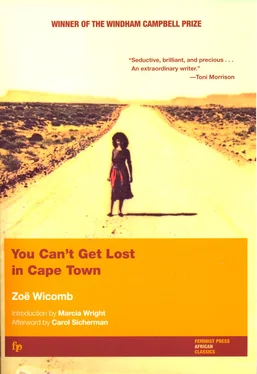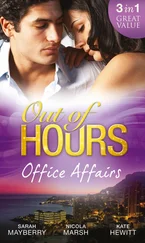There was no telling whether Jan Klinkies welcomed or resented this shovelling aside, whether he minded the discarded cans mounded in an obelisk on that particular spot. His face remained set. No tell-tale smile of approval played on his lips; he did not clench his teeth in anger. But I suspected that careful aesthetic considerations had been at play. The cans so callously shoved aside might have been placed one by one, interrupted by the stepping back to appraise from a distance and perhaps replace or reposition. There is the business of balance, for instance; the wrong shape could bring the lot toppling down and you’d have to tap sliding cans carefully back into place. And a starting pattern can gradually lose its regularity until a completely new one is formed. It is perhaps only the beginning, the first small mound that you step back from, that is totally pleasing. With such a great number and variety of cans the permutations of summit and slope must be endless. Perhaps it was precisely that consideration that made Jan Klinkies appear a detached observer.
The entrance was briskly cleared. There was plenty to do. The potatoes had not been earthed up, the cabbage seedlings elbowed each other ruthlessly for breathing space, the goat lay listless in need of some or other drug. And all the while Jan Klinkies shuffled about, heaping empty cans at the base of the tree where he carefully examined them for rust or dents or other blemishes. He also prowled about and spied on us from behind scant bushes through which his eyes shone like a jackal’s.
Aha, hum, said Father, clearing his throat and forgetting himself when our host came upon us suddenly, ‘Ahum, a cup of Boeretroos would be just the thing now. A strong cup of coffee.’ Jan Klinkies turned very red and rattled, ‘Whatcomfortsaboerispoisontome.’ Four times and I had just stopped counting when it came again, tattered with use so that only the contraction Boerpoison came out.
I was sent to make tea. I knew that he had given up Rooibos tea with its illustration of an ox wagon scaling the Drakensberg. The figures alongside the wagon were in Voortrekker dress, so Rooibos too offended him, in spite of his once-favourite sister Sissie’s pleading for its lack of tannin, its goodness for the urinary system. So I made Five Roses with the inoffensive label of a rosette of five on the silver wrapping suggesting nothing other than its name. The men drank their tea outside in the sun. I had mine in the kitchen which I scanned for irregularities, for clues. But the pots and pans like any others were heavy and black on the Jewel stove, and from a beam large enamel mugs hung at an angle at which mugs of that size would. Two or three modest cobwebs clung to the beam. There was nothing of interest. Besides, the dust rose from the earth floor choking curiosity.
Through the window I watched them sitting in the sun on their haunches. Father beamed at the unexpected pleasure of taking tea together, observing the ritual of men breaking off from work. They slurped their tea noisily and in concert. The pauses were liberally interspersed with the one-sided conversation conducted by Father.
‘The potatoes don’t look too bad this year. When did they go in?’ Jan Klinkies held the tea in his mouth and stared at Father, who felt obliged to continue.
‘Last month, first week of last month, no later. I’d bet on it.’ They slurped their tea comfortably in concert. Until Jan Klinkies was caught with the mug just poised at his lips.
‘Is there enough to last through the winter? I’d have thought the little patch by the chicken run could be used as well, chickens have used it for so long, it should be good soil, give a good yield.’ A long silent savouring of tea. Then Father prefaced his remarks with gentle nodding.
‘You could be right, those fowls need the space. And ja, there are plenty potatoes for one and even for a family dinner now and again.’
For a moment Jan Klinkies took command of his slack jaw, but the resulting discomfort which might induce one to shift the pressure through talking made him drop the jaw again within seconds. He walked off with the mug of tea held carefully in front of him.
‘The floor is dusty,’ said Father, returning his mug to the kitchen. ‘We must smear it.’ By which he meant that I should, since I am a girl.
One could be fastidious about handling a cow-pat with bare hands, but the mixture of cow dung and a dollop of clay pounded to a smooth paste with a splash of water loses many of the unpleasant properties of freshly released dung, even though the texture resembles it more closely. And applied to the floor it is transformed by its function and so becomes sweet smelling. It is therefore in anticipation that the mixture in the bucket squelches luxuriously between playful fingers; that you apply it first thickly for idle sculpting before smoothing it down to a thin layer of sealant. Then the roughness of fibre presses up against the palm and is left like a sprinkling on the surface. The door left ajar, the freshly smeared room, just dried, suggests such lush green meadows as the cows have never seen.
The kitchen floor was done. There was a fair amount left in the bucket. It seemed a pity to waste it, to pour the mixture away in rivulets down a slope or splash it over a ghanna bush, foully disfiguring wherever it chanced to land. I thought of doing the dining-room floor. The dining-room was never used. It had lost its original function of seating deaf great-aunts at family gatherings. I tiptoed across the kitchen, smoothing the stunted footprints on the wet dung behind me. I battled with the three bolts that warned against entry.
The room was small. A square table with tucked-in extensions stood in the corner. Four chairs, tucked in, touched each other’s knees sedately at four right angles, forming a lesser square under the table. Two more chairs of the same family fitted the corners facing me as I surveyed the room from the doorway. Two persons sitting on these chairs would face each other squarely, knees held close together in decorum with the room. To my left, fitting the fourth corner, was the sideboard with a glass-fronted display area which once was packed with objects worthy of a privileged position. Three of these were left, abandoned on their backs or sides as the others were hurriedly taken away. A band of gold on white porcelain, a painted something on blue opaque glass, a flash of silver; I could not be sure in the darkened room. Perhaps they were not whole objects; perhaps they were mere fragments of things shattered in a reckless removal.
I did not hear anyone cross the kitchen floor. There was simply a shadow beside me in the doorway and then he sprinted over to the sideboard and stretched his arms and planted his feet wide apart in a modified crucifixion pose.
Jan Klinkies, my cousin once removed, did not seem himself at all. Between his long legs, just beneath the inverted V of his crotch pressed against the cupboard space below the display cabinet, was a piece of paper stuck on to the wood. In the shape of a star and of a dull goldish colour. I left the room with the bucket still swinging in my right hand. The star was familiar. But the floor, as I turned to check his position, the floor was covered with patterned linoleum as of course a dining-room floor would be. Hardly in need of cow dung. Silly of me, and I remembered that it was not really a star at all, but almost a star, the label of the Gold Cross condensed-milk can.
Father was waiting. We were ready to go. The afternoon wind was rising. Not that anything was suddenly carried off; things merely shuffled in readiness. The tree barely moved, but the branches stooping heavily under the hundreds of cans tied to them with wire rattled and sent off beams of blinding light at angles doubtlessly corresponding to a well-known law.
Читать дальше












